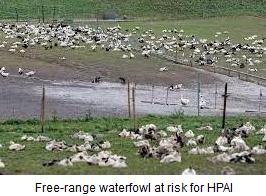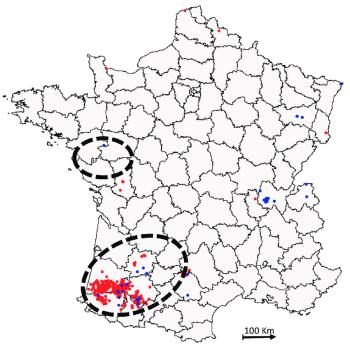 Following repeated outbreaks of Highly Pathogenic avian Influenza (HPAI) with extensive losses among domestic waterfowl, veterinary authorities in France have initiated a trial to determine the efficacy of vaccines as a control measure. Minister of Agriculture Julien Denormandie decided that the evaluation of vaccines should be undertaken by the National School of Veterinary Medicine in Toulouse.
Following repeated outbreaks of Highly Pathogenic avian Influenza (HPAI) with extensive losses among domestic waterfowl, veterinary authorities in France have initiated a trial to determine the efficacy of vaccines as a control measure. Minister of Agriculture Julien Denormandie decided that the evaluation of vaccines should be undertaken by the National School of Veterinary Medicine in Toulouse.
France has diagnosed 1,370 HPAI infections since the third quarter of 2021 resulting in depletion of 16 million birds with a high concentration in the Vendee Region, the epicenter of foie gras production. Since December 2021 control measures comprising depletion of infected flocks and in some cases preemptive culling, has resulted in a cost exceeding $165 million. It is understood that two DNA vaccines are undergoing evaluation. The objective of the study is to ascertain whether creating an immune population will prevent dissemination of H5N1 virus among farms within a region.
 According to the World Organization of Animal Health (WOAH, successor to the OIE) “The use of vaccination against avian influenza may be recommended under specific conditions. Any vaccine used should comply with the standards described in the Terrestrial Manual.”
According to the World Organization of Animal Health (WOAH, successor to the OIE) “The use of vaccination against avian influenza may be recommended under specific conditions. Any vaccine used should comply with the standards described in the Terrestrial Manual.”
The Manual includes the statement, “Vaccination can be used as an effective complementary control tool when a stamping-out policy alone is insufficient. Whether to vaccinate or not should be decided by the Veterinary Authority on the basis of the avian influenza situation as well as the ability of the Veterinary Services to implement the vaccination strategy as described in relevant Chapter 4.”